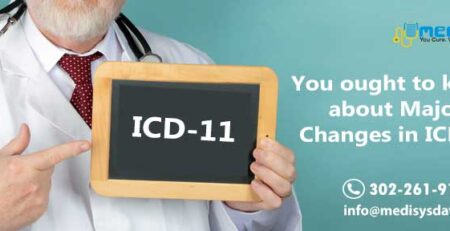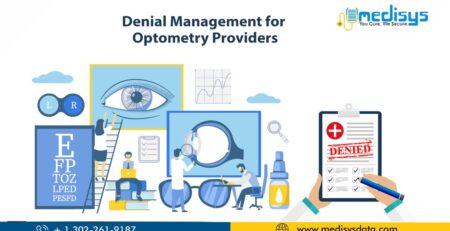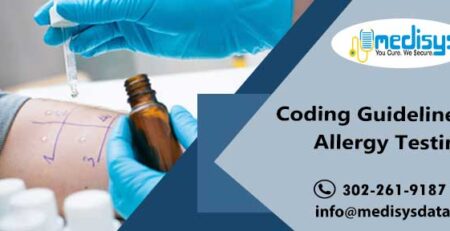Introduction
In the ever-evolving landscape of healthcare, compliance with the Health Insurance Portability and Accountability Act (HIPAA) is crucial for protecting patient information and maintaining trust. For healthcare providers, ensuring HIPAA compliance in medical billing is not just a legal requirement but also a cornerstone of ethical practice. This article aims to provide a detailed overview of HIPAA compliance in medical billing, helping healthcare providers understand its importance, requirements, and best practices.
What is HIPAA?
Enacted in 1996, HIPAA is a federal law designed to safeguard patient health information (PHI) from fraud and abuse. The act includes several key provisions:
- Privacy Rule: Establishes standards for the protection of PHI.
- Security Rule: Sets standards for electronic PHI (ePHI) security.
- Breach Notification Rule: Requires covered entities to notify affected individuals and the Department of Health and Human Services (HHS) in the event of a breach.
Importance of HIPAA Compliance in Medical Billing
Medical billing involves handling sensitive patient data, including personal details, diagnoses, treatments, and insurance information. Non-compliance with HIPAA can lead to severe consequences, including hefty fines, legal penalties, and damage to reputation. Ensuring HIPAA compliance in medical billing is essential for:
- Protecting Patient Privacy: Safeguarding patient information fosters trust and maintains the integrity of the healthcare system.
- Avoiding Legal Penalties: Non-compliance can result in fines ranging from $100 to $50,000 per violation, with a maximum annual penalty of $1.5 million.
- Enhancing Operational Efficiency: Adhering to HIPAA standards ensures streamlined processes and reduces the risk of data breaches.
Key HIPAA Requirements for Medical Billing
Ensuring HIPAA compliance in medical billing requires the implementation of several administrative, physical, and technical safeguards. Each of these safeguards plays a crucial role in protecting patient information and ensuring that healthcare providers adhere to HIPAA regulations.
1. Implement Administrative Safeguards
Administrative safeguards are the foundation of HIPAA compliance. Healthcare providers must develop and enforce comprehensive policies and procedures designed to protect PHI. These policies should outline the steps to be taken to ensure compliance, including staff training, risk analysis, and incident response. Regular training and awareness programs are essential to keep staff informed about HIPAA regulations and the importance of protecting patient information. Conducting regular risk assessments helps identify potential vulnerabilities and implement measures to mitigate them, ensuring that all aspects of the organization are aligned with HIPAA requirements.
2. Implement Physical Safeguards
Physical safeguards are equally important in protecting patient information. Healthcare providers must control access to areas where PHI is stored, ensuring that only authorized personnel can enter these areas. This can be achieved through the use of secure access controls, such as key cards or biometric systems. Additionally, it is crucial to secure all devices that access ePHI, including computers, tablets, and smartphones. This includes implementing physical locks and securing workstations to prevent unauthorized access. Regular maintenance and monitoring of these physical safeguards are necessary to ensure their effectiveness.
3. Implement Technical Safeguards
Technical safeguards focus on protecting ePHI through various technological measures. Implementing access controls, such as unique user IDs and passwords, helps ensure that only authorized individuals can access ePHI. Encryption is another critical technical safeguard, as it protects data during transmission and storage, making it unreadable to unauthorized users. Healthcare providers should also implement audit controls to record and examine access and activity in information systems containing ePHI. These audit controls help detect any unauthorized access or suspicious activity, allowing for prompt corrective action.
4. Ensure Proper Documentation
Proper documentation is a fundamental aspect of HIPAA compliance. Healthcare providers must maintain comprehensive documentation of their privacy and security policies, as well as records of any breach notifications and responses. This documentation serves as evidence of compliance and can be invaluable in the event of an audit or investigation. Regularly reviewing and updating this documentation ensures that it remains current and reflects any changes in regulations or organizational practices.
Best Practices for HIPAA Compliance in Medical Billing
- In addition to adhering to the key HIPAA requirements, healthcare providers can implement several best practices to enhance their compliance efforts. Choosing a HIPAA-compliant billing company, such as Medisys, can provide added assurance that billing processes adhere to all regulatory requirements.
- Regular audits and monitoring are essential to ensure ongoing compliance and identify areas for improvement. Conducting periodic audits helps detect any gaps in compliance and allows for timely corrective action.
- Data backup and recovery plans are critical in protecting against data loss. Implementing robust backup solutions ensures that ePHI is regularly backed up and can be restored in the event of a data loss incident.
- An effective incident response plan is also necessary to efficiently manage data breaches. Healthcare providers should develop and test an incident response plan, ensuring that all staff members are aware of their roles and responsibilities in the event of a breach.
- Continuous training is vital to keep staff informed about the latest HIPAA regulations and best practices. Providing ongoing HIPAA training ensures that employees remain vigilant and knowledgeable about the importance of protecting patient information. Training programs should be tailored to the specific needs of different staff members, ensuring that everyone understands their role in maintaining compliance.
To conclude,
Ensuring HIPAA compliance in medical billing is a critical responsibility for healthcare providers. By understanding the importance of HIPAA, adhering to its requirements, and implementing best practices, healthcare providers can protect patient information, avoid legal penalties, and enhance the efficiency of their operations. Medisys, a leading medical billing company, is committed to helping healthcare providers achieve and maintain HIPAA compliance, ensuring the highest standards of data protection and patient privacy. For more information on how Medisys can help you with HIPAA-compliant medical billing solutions, contact us today at 888-720-8884 / info@medisysdata.com. Let’s work together to ensure the safety and privacy of your patient data.












